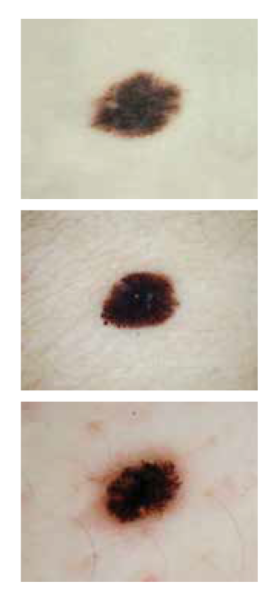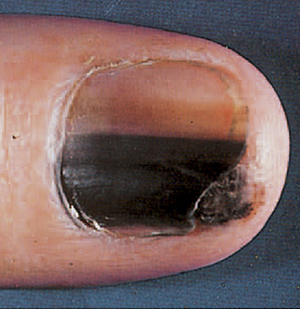Read More Q: I’ve heard of people who put off surgery for years; do I have to get my skin cancer treated right away? William Hanke, MD, MPH: Most of the time, skin cancers are caught early, when they are relatively small, and are treated with outpatient surgery, such as Mohs micrographic surgery. But sometimes they can grow to become …
Ask the Expert: Why have your “ABCDEs” for the warning signs of melanoma changed?
Read More Rethinking the Alphabet: Some experts believe “dark” may be an even more important warning sign of melanoma than “diameter” and deserves more awareness. Q: One of my favorite tools on The Skin Cancer Foundation website is the “ABCDEs of melanoma.” Recently I noticed that under “D” you now include, in addition to “diameter,” a second warning sign for …
The Irresistible Calm of Nature
Read More We all know that nature nurtures us. Scientific studies confirm there are benefits when you step onto a forest trail, hear a breeze rustle the leaves, touch the roughness of bark and smell the scent of pine needles and wildflowers. So what’s stopping you? Just don’t forget the sun protection! If a friend asked what helped you most …
Looking for Clues: Lesser-Known Signs of Skin Cancer
Read More By Jen Singer Skin cancers don’t all look alike. You can study the warning signs for the three most common types, basal cell carcinoma, squamous cell carcinoma and melanoma, on The Skin Cancer Foundation website. But occasionally a skin cancer develops that may seem like it’s something else that’s not a big deal. Early detection of skin cancer …
4 Skin Conditions That Can Affect Skin Cancer Detection and Treatment
Read More Millions of Americans are affected by skin cancer, but millions more are battling skin conditions like rosacea, eczema, psoriasis and melasma. Although bothersome, these conditions are usually harmless and manageable through ongoing treatment. Do these skin problems make it harder to spot a potential skin cancer? Can a dermatologist treat a patient’s condition and skin cancer simultaneously? We …
#ThisIsSkinCancer – If You Have Skin, You Can Get Skin Cancer
Read More Every year in the U.S., millions of people learn the truth about what it means to say, “This is skin cancer.” For some, a skin cancer diagnosis means outpatient surgery and a better approach to prevention and detection. For others, the disease is far more serious, even life-threatening. Every survivor has a story. And The Skin Cancer Foundation’s …
The Sun Keeps Rising: Why Seniors Can’t Skip UV Protection
Read More By Robert A. Norman, MD Congratulations. You’ve survived life’s slings and arrows and made it to your senior years. It took some brains. It took common sense. Now is not the time to abandon those assets. Many older people seem to feel that after navigating past decades of life’s pitfalls, they can cast caution to the winds—especially when …
Dr. Ibrahim’s Gene Expression Research for Skin Cancer in Practical Dermatology
In this recent article, Practical Dermatology highlights Dr. Sherrif Ibrahim’s research on gene expression profiling of the second most common skin cancer, squamous cell carcinoma (SCC). “We worry about squamous cell carcinoma because occasionally it can misbehave and travel to other areas of the body like the lymph nodes in the neck, and then it can become life-threatening,” Dr. Ibrahim …
How to Talk to Your Teen About Tanning
Read More People who first use a tanning bed before age 35 increase their risk for melanoma by 75 percent. It’s tremendously important to warn teens about the dangers of tanning but getting through to them can be challenging. Amy Wechsler, MD, a dermatologist and psychiatrist practicing in New York City (and a parent to two young adults), talked to …
How to Perform a Skin Self-Exam, and What to Look For
Read More The desire to avoid illness is a good enough motivator to develop healthy habits. We eat well, exercise, wash our hands and take vitamins. Avoiding skin cancer is no exception — we wear sunscreen, seek the shade and cover up with clothing to reduce our risk. Unfortunately, even those with the most diligent sun protection regimen aren’t immune. …









